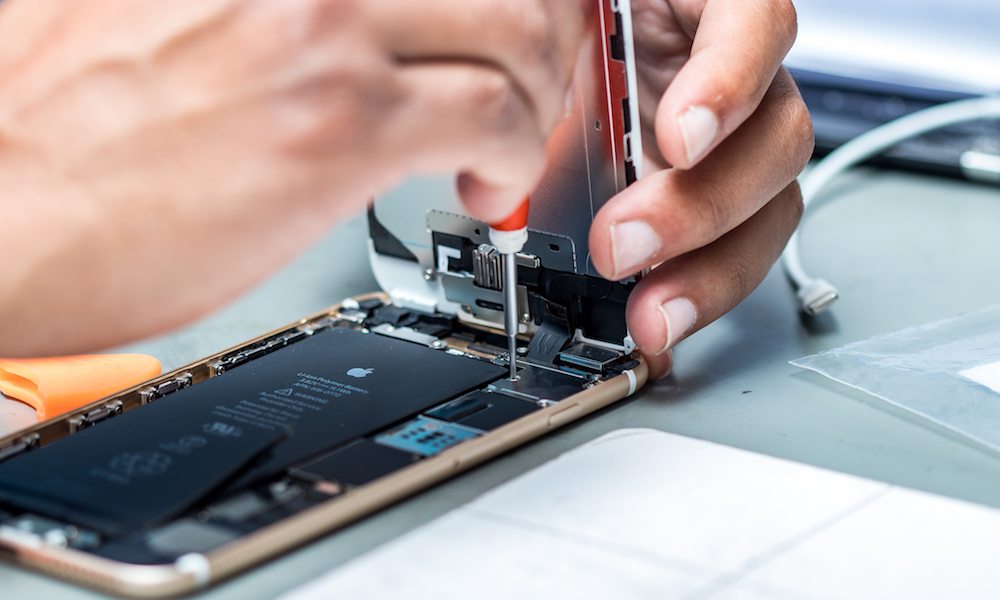Apple Officially Supports California Right to Repair Bill
 Credit: Apple
Credit: Apple
Toggle Dark Mode
In a surprising twist, Apple has voiced support for California’s “right to repair” bill, a remarkable about-face for a company that spent years lobbying against such legislation.
As reported by TechCrunch and iFixit, Apple sent a letter to California state senator Susan Talamantes Eggman this week, officially endorsing herSB-244 Right to Repair Act that she introduced in the state legislature in January.
SB-244 is intended to improve California’s current warranty law and empower consumers with the ability to fix products on their own. Under the bill, manufacturers would be required to make parts, tools, and diagnostics more freely available to end users and third-party repair providers. The bill covers most consumer electronics and home appliances, although there are a few exclusions, such as game consoles and alarm systems, to avoid enabling piracy or compromising security.
At one time, the very idea of Apple acquiescing to right-to-repair legislation would have seemed unimaginable. Over the years, the company has fought against such legislation in state legislatures across the US, with lobbying efforts going back to 2017 in Nebraska and New York.
However, it’s also clear that the iPhone maker has been fighting a losing battle. As states continued to push forward with right-to-repair legislation and co-founder Steve Wozniak voiced his support, Apple waved a white flag of sorts and decided it needed to be proactive, announcing its own self-service repair program in late 2021.
The new Apple Self Service Repair Store launched in early 2022, and while it didn’t necessarily make iPhone repairs any cheaper, it at least gave folks the opportunity to handle common problems like screen damage and battery replacements with genuine Apple parts and the proper tools and service manuals.
Apple’s official stance against right-to-repair legislation has always been that it doesn’t want to put users at risk or compromise the privacy and security of their devices.
In 2017, Apple suggested to Nebraska lawmakers that their proposed right-to-repair legislation could turn their state into a “mecca for bad actors,” with hackers and criminals descending into Nebraska to take advantage of loopholes that would allow them to more easily compromise the security of Apple’s devices.
Ironically, Apple also attempted to demonstrate the dangers of self-repair in California in 2019. Lobbyists funded by Apple reportedly met with members of the state’s Privacy and Consumer Protection Committee to demonstrate how consumers attempting to fix their own iPhones could hurt themselves by puncturing the lithium-ion battery.
Needless to say, it’s a huge surprise to see Apple now actually endorsing the kind of right-to-repair legislation it once fought in that very same state. However, the reality might be a bit more nuanced.
Firstly, Apple is bowing to the inevitable here. SB-244 is on the cusp of becoming law, so there’s not much Apple can do to oppose it. The bill passed the Senate in a 38-0 vote in May, and thus far, it hasn’t received any opposition from the Assembly, and it’s now awaiting final approval from the Assembly Appropriations Committee before it goes to a full assembly vote.
However, Senator Eggman has been working on California’s right-to-repair legislation since 2018. That means Apple has had ample time to weigh in and push for specific concessions regarding the potential for physical harm and security issues.
The letter Apple penned to the Senator (as shared by The Verge) suggests the company feels its voice has been heard on the most important issues of “protecting consumer safety, privacy, and security,” but it also makes it clear that Apple will only “continue to support the bill so long as it continues to provide protections for customers and innovators.”
Among those protections, Apple insists that the bill not impose any conditions where manufacturers would be required to allow repair providers to disable device security features.
Apple also believes that manufacturers should only be required to provide those things necessary to support routine repairs — those “performed by authorized repair channels” — and not “a broader undefined scope of repairs which may compromise consume physical safety, repair reliability, and device integrity.” In other words, Apple has no problem providing tools for things like screen, camera, and battery replacements, but it won’t be happy with a bill that would require it to provide replacement flash memory chips, tools, and instructions for folks who might want to attempt an iPhone storage upgrade.
Lastly, Apple also maintains that third-party repair providers should be required to “disclose the use of non-genuine or used parts.”








